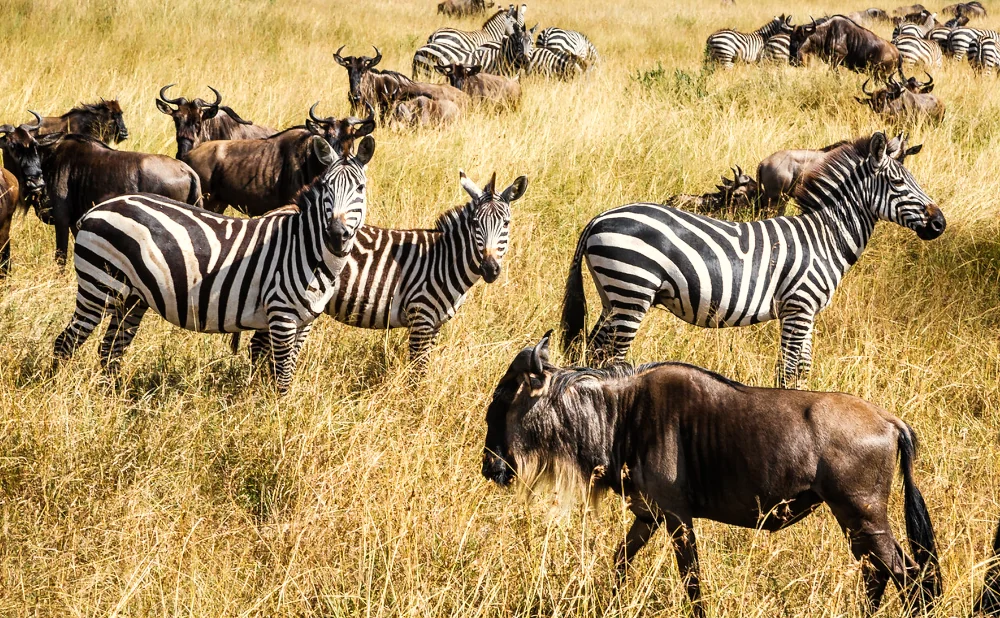Exploring the Diverse Religions of Tanzania
Tanzania, a country located in East Africa, is known for its rich cultural heritage and breathtaking landscapes. But beyond its famous safaris and the majestic Mount Kilimanjaro, Tanzania is also home to a fascinating tapestry of religions. This article aims to take you on a golden trip through Tanzania's diverse religious landscape, highlighting the various beliefs that coexist within this vibrant nation.
The Major Religions in Tanzania
Tanzania is a country where religious diversity thrives. The three main religions practiced here are Christianity, Islam, and indigenous beliefs. These religions have shaped the cultural and social fabric of Tanzanian society in profound ways.
Christianity in Tanzania
Christianity is one of the dominant religions in Tanzania, with a substantial portion of the population identifying as Christians. The faith was introduced to the region by European missionaries during the colonial period. Today, it is practiced in various forms, including Roman Catholicism, Protestantism, and other evangelical denominations.
Christians in Tanzania participate in numerous religious activities, including church services, community gatherings, and charitable works. The church plays a significant role in education and healthcare, providing services to many communities across the country.
Islam in Tanzania
Islam is another major religion in Tanzania, particularly prevalent along the coastal regions and the Zanzibar archipelago. The religion was introduced through trade routes from the Arabian Peninsula, and it has a long and storied history in the region.
Muslims in Tanzania follow the Sunni branch of Islam, and the religion influences many aspects of daily life, including dietary practices, dress codes, and social interactions. Mosques are central places of worship and community gathering, and they often serve as centers for education and social services.
Indigenous Beliefs and Practices
Before the arrival of Christianity and Islam, various indigenous beliefs were practiced by the diverse ethnic groups in Tanzania. These traditional religions are often characterized by a strong connection to nature, ancestor worship, and a belief in a pantheon of spirits and deities.
While the influence of indigenous beliefs has waned over time, they remain an integral part of the cultural identity for many Tanzanians. Traditional rituals and ceremonies are still conducted, particularly in rural areas, and they often coexist with the more dominant religions.
The Role of Religion in Tanzanian Society
Religion in Tanzania is more than just a matter of personal faith; it plays a crucial role in the social and cultural life of the nation. Religious organizations contribute significantly to education, healthcare, and social welfare. They provide essential services, particularly in remote and underserved areas where government resources may be limited.
Religious Festivals and Celebrations
Tanzania is a country that loves to celebrate, and religious festivals are an essential part of the cultural calendar. These events are not only expressions of faith but also opportunities for community bonding and cultural exchange.
Christian Festivals
Christian festivals such as Christmas and Easter are widely celebrated across Tanzania. These occasions are marked by church services, feasting, and family gatherings. Many communities also engage in acts of charity, providing support to those in need during these festive times.
Islamic Festivals
Muslim festivals, including Eid al-Fitr and Eid al-Adha, are significant events in Tanzania, especially in the coastal regions. During these festivals, families come together to pray, share meals, and extend hospitality to friends and neighbors. The end of Ramadan, marked by Eid al-Fitr, is particularly joyous, with communal feasting and gifts being exchanged.
Indigenous Rituals and Celebrations
Indigenous rituals, though less visible, remain a vital part of Tanzania's cultural heritage. These ceremonies often involve music, dance, and offerings to the spirits or ancestors. They are occasions for storytelling and the transmission of traditional knowledge from one generation to the next.
Interfaith Relations in Tanzania
Tanzania is often cited as a model of religious tolerance and coexistence. Despite the diversity of beliefs, the country has largely avoided religious conflict, thanks in part to a strong national identity and a culture of mutual respect. Interfaith dialogues and initiatives are common, promoting understanding and collaboration among different religious communities.
Challenges and Opportunities
While Tanzania enjoys a high degree of religious harmony, it is not without its challenges. Issues such as poverty, education, and healthcare can sometimes create tensions between different groups. However, religious organizations often work together to address these issues, providing a platform for cooperation and unity.
The diverse religions of Tanzania contribute to the country's rich cultural mosaic. From the mosques of Zanzibar to the churches of Dar es Salaam and the sacred groves of indigenous communities, Tanzania is a land where different faiths coexist and enrich each other. Understanding and appreciating this diversity is key to experiencing the true essence of Tanzania. Whether you're visiting for its natural wonders or its vibrant cultures, the religious landscape of Tanzania offers a unique insight into the nation's soul.
As you plan your golden trip to Tanzania, take time to explore its religious sites and engage with its communities. You'll find that the spirit of Tanzania is as diverse and welcoming as its people.











